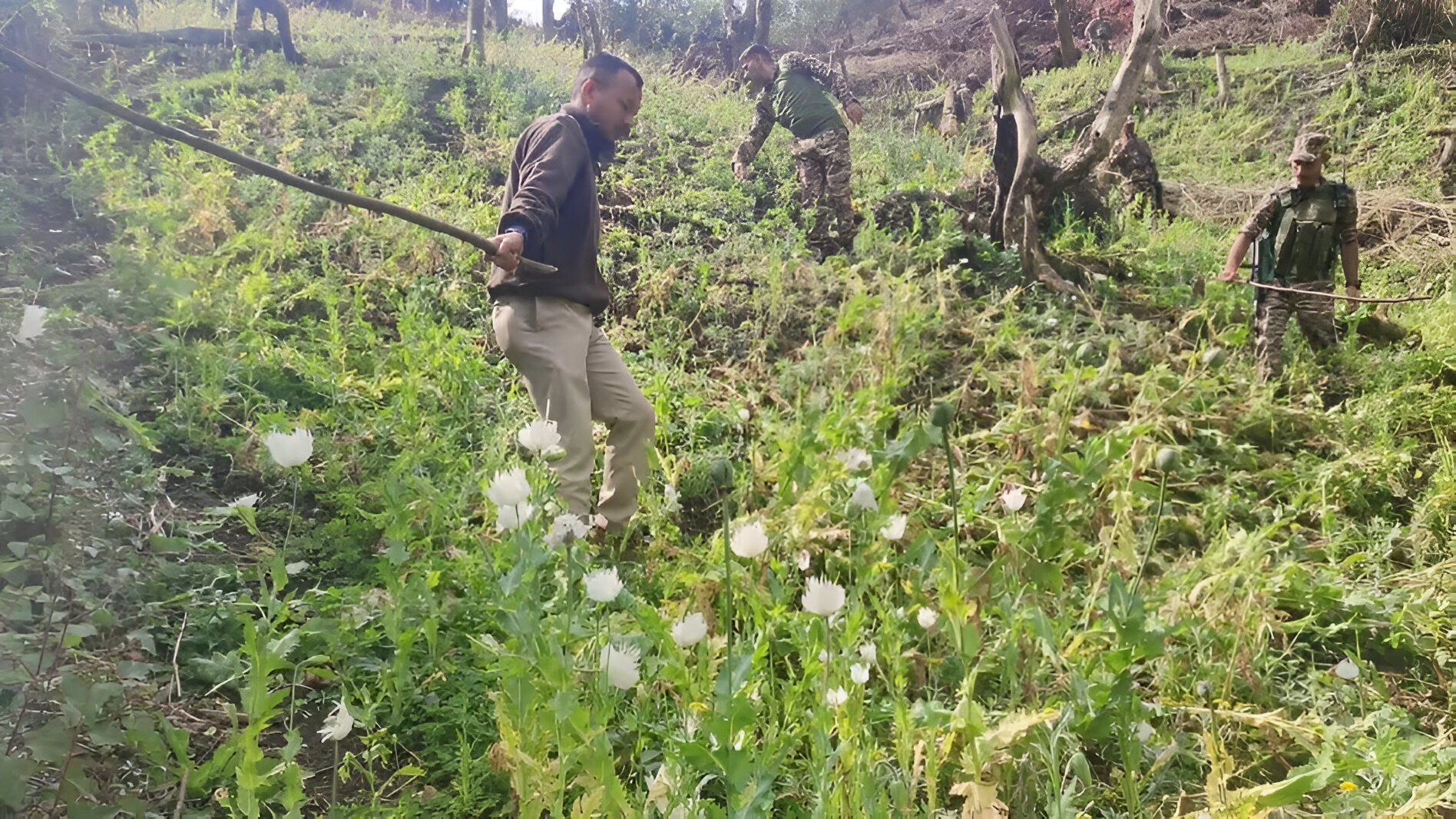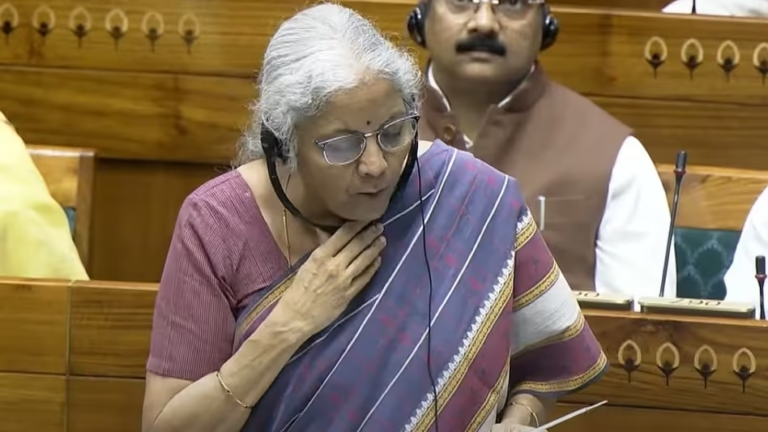Manipur Security Forces Dismantle 50 Acres of Illegal Poppy Cultivation: A Comprehensive Analysis
Introduction
Have you ever wondered what goes on behind the scenes when law enforcement takes on deep-rooted criminal networks? In Manipur, a dramatic operation unfolded as security forces dismantled a massive 50-acre illegal poppy cultivation site. This isn’t just another headline; it’s a story of resilience, strategy, and the tireless pursuit of justice. In this article, we’re going to break down every detail—from the background of poppy cultivation to the execution of the operation, and from the impact on local communities to what the future might hold. So, let’s jump in and explore this significant development that’s making waves across the region.
The Background of Illegal Poppy Cultivation in Manipur
Illegal poppy cultivation isn’t a new phenomenon in many parts of the world, and Manipur is no exception. For years, the lush landscapes of this region have unfortunately provided the perfect conditions for cultivating poppy plants—a crop known for its use in producing opium and other narcotics. But why poppy?
Poppy plants thrive in certain climates, and their resilience has made them a favored crop among illegal growers. In areas where economic opportunities are scarce and governance is sometimes challenged by remote terrains, turning to poppy cultivation can seem like an easy way to generate quick cash. However, this trade comes at a steep cost: it fuels drug trafficking networks, undermines local economies, and poses severe public health risks.
Historically, the issue has deep roots. Some argue that decades of neglect in rural development, coupled with persistent socio-political challenges, have contributed to the rise of such illegal activities. When communities struggle to find sustainable income, the lure of a lucrative, albeit illegal, crop can be hard to resist. The dismantling of a 50-acre poppy plantation in Manipur is a stark reminder of these underlying issues—and a call to action for comprehensive, long-term solutions.
Understanding the Significance of the Operation
Imagine a chessboard where every move counts, and each piece can tip the balance. The recent operation in Manipur is much like that—a carefully calculated move by security forces aimed at destabilizing a key component of an illicit network. But why is this dismantling so crucial?
- Disrupting a Lucrative Illegal Economy:
Illegal poppy cultivation directly fuels the production of opiates, which in turn finance further criminal activities. By targeting a massive 50-acre area, the security forces have dealt a significant blow to the financial backbone of these networks. It’s like pulling out a crucial piece from a complex machine, forcing the entire operation to halt or rethink its strategies. - Protecting Public Health and Social Welfare:
The ramifications of narcotics production extend beyond criminal circles. Communities bear the brunt of drug abuse, addiction, and associated health issues. By dismantling the cultivation site, the authorities are not only thwarting the illegal drug trade but also safeguarding the well-being of the local population. This step is essential for restoring a sense of security and hope in affected areas. - Upholding the Rule of Law:
In regions like Manipur, where law enforcement often faces multifaceted challenges, every successful operation reaffirms the government’s commitment to the rule of law. It sends a strong message to other potential offenders: illegal activities will not go unnoticed or unpunished. This is critical for maintaining societal order and reinforcing trust in law enforcement.
Inside the Operation: A Closer Look at the Tactics and Strategies
Let’s take a journey through the operation itself—a tale of meticulous planning, rapid execution, and high stakes. Think of it as a well-choreographed dance, where every step must be perfectly timed.
- Intelligence Gathering:
The first phase of the operation involved gathering crucial intelligence. Local informants, surveillance tools, and on-ground scouts provided detailed information about the location and scale of the poppy cultivation. The intelligence was akin to piecing together a complex puzzle, where each clue brought the authorities one step closer to the target. - Coordinated Strike:
Once the intelligence was in place, the operation moved into high gear. Security forces, equipped with the latest technology and a thorough understanding of the local terrain, launched a coordinated strike. Picture a team of expert chess players, where every move is deliberate and aimed at trapping the opponent. The swift execution not only minimized the risk of escape but also ensured that the entire cultivation site was effectively neutralized. - Resourceful Use of Technology:
Modern law enforcement is no longer solely reliant on manpower. Advanced surveillance techniques, aerial drones, and real-time data analytics played a pivotal role in tracking the movements of the illegal growers. This blend of technology with traditional policing methods underscores how contemporary challenges demand modern solutions. - Community Collaboration:
An often-overlooked aspect of such operations is the role of community support. Local residents, many of whom had long suffered the consequences of illegal narcotics production, provided valuable insights. Their willingness to cooperate was like the final piece of the puzzle that enabled security forces to execute the operation seamlessly. In many ways, this collaboration is a testament to the power of community vigilance and the shared desire for a safer future.
Socio-Economic Impacts of Illegal Poppy Cultivation
It’s important to understand that the ramifications of illegal poppy cultivation extend far beyond the confines of a 50-acre field. This operation has broad implications for the socio-economic fabric of Manipur and beyond.
- Economic Drain and Social Strain:
The revenues generated by illegal poppy cultivation often flow into criminal networks rather than community development. When local economies are hijacked by such illicit activities, the funds that could have supported schools, hospitals, and infrastructure projects are diverted to nefarious purposes. This not only stifles economic growth but also deepens the socio-economic divide. - Public Health Crisis:
The production and trafficking of narcotics lead to increased rates of drug addiction and related health issues. Communities that are already struggling with limited access to healthcare find themselves in a vicious cycle of poverty and poor health. The presence of illegal poppy fields serves as a constant reminder of the looming threat of drug abuse, affecting both young and old alike. - Undermining Trust in Institutions:
When illegal activities are allowed to flourish, it erodes the trust that citizens have in their government and law enforcement agencies. The dismantling of a large-scale operation, therefore, isn’t just about cutting off a revenue stream—it’s about restoring faith in the institutions meant to protect the people. This move helps to rebuild a sense of security and community pride.
Environmental Consequences of Poppy Cultivation
Did you know that illegal agricultural practices can also have a profound impact on the environment? The sprawling poppy fields in Manipur not only disrupt the local ecosystem but also lead to significant ecological damage.
- Degradation of Natural Resources:
Poppy cultivation often requires the clearing of large tracts of land, leading to deforestation and soil degradation. The loss of vegetation can have a ripple effect on local wildlife and biodiversity, much like removing a key domino from a chain reaction. - Water Resource Contamination:
The use of harmful pesticides and fertilizers in these illegal operations can contaminate local water supplies. This contamination not only affects human health but also harms aquatic life and disrupts the natural water cycle. - Long-Term Ecological Damage:
The environmental footprint of such operations can linger long after the cultivation has stopped. Recovery of the land might require significant rehabilitation efforts, both to restore the natural flora and to ensure that the soil is no longer toxic. Thus, the benefits of dismantling the poppy cultivation site extend to the environmental realm as well.
Government Policies and Future Preventative Measures
The operation against the illegal poppy fields is a clear signal that the government is not turning a blind eye to the growing menace of narcotics production. But what comes next? How can future occurrences be prevented? Let’s delve into the policy initiatives and forward-thinking strategies that are being put into place.
- Stricter Enforcement of Agricultural Laws:
The government is now under pressure to enforce existing agricultural laws more stringently. This includes regular inspections and audits of farmlands suspected of being used for illegal cultivation. Think of it as installing a security system in your home—prevention is always better than cure. - Economic Diversification Initiatives:
One of the root causes of illegal poppy cultivation is the lack of viable economic opportunities. To address this, authorities are investing in alternative livelihoods for farmers. By promoting sustainable crops and providing financial incentives for legal agriculture, the government hopes to offer a stable alternative to the lucrative but risky poppy trade. - Community Awareness and Education:
Empowering local communities with knowledge about the dangers of illegal drug cultivation is crucial. Awareness campaigns, workshops, and educational programs are being planned to inform farmers and residents about the long-term benefits of sustainable farming practices. When communities are well-informed, they become the first line of defense against illegal activities. - Technological Integration in Law Enforcement:
The success of the recent operation underscores the need for ongoing investment in technology. From satellite imagery to advanced data analytics, modern tools are essential in monitoring and preempting illegal activities. Future strategies will likely see a stronger integration of technology with traditional policing, ensuring that law enforcement is always one step ahead. - Strengthening Inter-Agency Collaboration:
Illegal poppy cultivation is a complex issue that often involves multiple jurisdictions. To tackle this effectively, local law enforcement agencies are collaborating with state and national authorities. This coordinated approach ensures that intelligence is shared, resources are pooled, and operations are more effective in curbing illegal activities across the board.
The Human Element: Stories from the Ground
No story is complete without hearing from the people directly affected. Local communities in Manipur have had to live with the consequences of illegal poppy cultivation for far too long. Their stories add a human dimension to this operation.
- Farmers Seeking a Better Future:
Many local farmers, caught in the web of limited opportunities, have found themselves compelled to grow poppy despite knowing its risks. For them, it’s a question of survival—a choice between a risky cash crop and uncertain returns from traditional agriculture. Now, with government initiatives in place, there is hope that these farmers will soon have access to better, legal alternatives. - Community Voices of Resilience:
Residents have long expressed their concerns about the detrimental effects of illegal narcotics on community health and safety. With the dismantling of the poppy fields, there’s a palpable sense of relief. Community leaders are optimistic that this move will pave the way for enhanced security and improved living conditions. It’s like watching a long-awaited sunrise after a dark night of uncertainty. - Law Enforcement’s Commitment:
The security forces involved in this operation are driven by a genuine commitment to protecting their communities. Many officers speak about their dedication to ensuring that Manipur remains a safe place for all its residents. Their stories remind us that behind every successful operation, there is a team of brave individuals working tirelessly to uphold justice.
Challenges and Roadblocks Ahead
While the dismantling of a 50-acre poppy plantation is a significant achievement, it’s essential to recognize that the battle against illegal narcotics is far from over. Several challenges remain on the road to long-term peace and security.
- Geographical and Logistical Hurdles:
Manipur’s diverse terrain, with its dense forests and remote villages, often provides a perfect cover for illegal activities. Law enforcement agencies must continuously adapt their strategies to navigate these challenging landscapes. Each new operation is like climbing a steep mountain—difficult but necessary for reaching the summit of success. - Economic Pressures:
The lure of quick money from poppy cultivation can be hard to resist, especially in economically disadvantaged areas. Without sustainable alternatives and robust support systems, the risk of reverting to illegal practices remains high. This is why economic diversification and financial support for local communities are so crucial. - Cross-Border Smuggling and International Networks:
Illegal poppy cultivation is rarely an isolated activity. It is often linked to larger, transnational drug trafficking networks. Disrupting these networks requires not only local but also international cooperation. It’s like trying to catch a shadow—complex and elusive, demanding constant vigilance and cooperation on multiple levels. - Legal and Bureaucratic Obstacles:
Sometimes, the wheels of justice can be slow to turn. Legal loopholes and bureaucratic red tape may hinder the swift implementation of policies designed to curb illegal activities. Overcoming these obstacles will require not just enforcement but also legislative reforms and administrative efficiency.
Environmental and Societal Benefits of the Crackdown
Let’s not forget the silver linings that come with dismantling illegal poppy cultivation. Beyond curbing the narcotics trade, this operation brings with it a host of environmental and societal benefits.
- Restoration of Local Ecosystems:
With the removal of poppy cultivation, there is an opportunity to restore the natural vegetation of the area. Local flora can be reintroduced, and efforts can be made to rehabilitate the land. This process is akin to healing a wound—the environment can slowly recover with proper care and attention. - Boosting Legal Agricultural Practices:
The government’s focus on sustainable farming practices can lead to a revitalization of traditional agriculture in Manipur. Farmers will have the chance to grow crops that not only support their livelihoods but also contribute positively to the local economy. Imagine a garden where every plant is nurtured to bloom—this is the future that can be cultivated through legal farming initiatives. - Enhanced Community Safety and Well-Being:
When illegal activities are curtailed, communities can breathe a little easier. The reduction in drug trafficking leads to lower rates of addiction and related health issues. In turn, families and communities are better positioned to thrive, creating a more stable and nurturing environment for future generations.
Looking Ahead: What Does the Future Hold?
The successful operation in Manipur is both an end and a beginning. It marks a significant milestone in the fight against illegal narcotics, yet it also sets the stage for future initiatives aimed at ensuring lasting change.
- Ongoing Vigilance and Enforcement:
The dismantling of a 50-acre poppy plantation is a win, but it’s crucial that law enforcement remains vigilant. Continuous monitoring, community engagement, and advanced surveillance will be key to preventing a resurgence of illegal cultivation. Think of it as tending a garden—constant care is necessary to keep unwanted weeds at bay. - Strengthening Regional Cooperation:
As noted earlier, illegal activities often cross regional and national boundaries. The success in Manipur could serve as a model for enhanced cooperation between different states and even neighboring countries. Collaborative efforts, information sharing, and joint operations will be essential in the global fight against illegal drug production. - Empowering Local Communities:
At the heart of any successful crackdown are the communities affected by these activities. Empowering local residents through education, economic support, and community development programs will ensure that they are active participants in shaping a safer future. When people are given the tools to succeed, they become the strongest guardians of their own well-being. - Adapting to Emerging Challenges:
The landscape of illegal cultivation and narcotics trafficking is ever-evolving. As technology advances and criminal networks become more sophisticated, law enforcement strategies must also adapt. Future operations will likely rely even more on data analytics, real-time intelligence, and community-driven initiatives to stay ahead of the curve.
Conclusion
In wrapping up our detailed exploration of the recent operation against illegal poppy cultivation in Manipur, it’s clear that this event is a landmark moment in the region’s ongoing battle against illicit activities. By dismantling a sprawling 50-acre plantation, the security forces have not only disrupted a major source of illegal revenue but also reaffirmed their commitment to protecting the community, the environment, and the future of sustainable agriculture.
This operation serves as a beacon of hope for many—an indication that even in the face of deep-seated challenges, determined efforts can yield significant results. It’s a call to action for policymakers, law enforcement, and community leaders alike: together, we can forge a path towards a safer, healthier, and more prosperous future for Manipur.
Every move taken today is like laying a brick in the foundation of a secure tomorrow. With continuous vigilance, community cooperation, and strategic enforcement, the dismantling of illegal poppy cultivation is just the beginning of a larger journey toward social, economic, and environmental restoration.
FAQs
- What led to the discovery of the 50-acre illegal poppy cultivation site?
Authorities received detailed intelligence from local informants and utilized advanced surveillance techniques, which together unveiled the extensive poppy cultivation network in the region. - How does illegal poppy cultivation impact local communities?
Illegal poppy cultivation undermines local economies by diverting funds from community development, increases public health risks due to drug abuse, and degrades the environment through deforestation and soil contamination. - What measures are being taken to provide alternative livelihoods for farmers?
The government is promoting sustainable agriculture by offering financial incentives, training programs, and support for legal crops to help farmers transition from poppy cultivation to more sustainable economic practices. - How do modern technologies enhance law enforcement operations in such cases?
Advanced tools such as aerial drones, satellite imagery, and real-time data analytics help law enforcement monitor vast areas, track illicit activities, and coordinate swift and precise operations. - What future strategies are planned to prevent a recurrence of illegal cultivation?
Future strategies include stricter enforcement of agricultural laws, enhanced community awareness programs, economic diversification initiatives, and greater regional and international collaboration to dismantle transnational drug networks.





